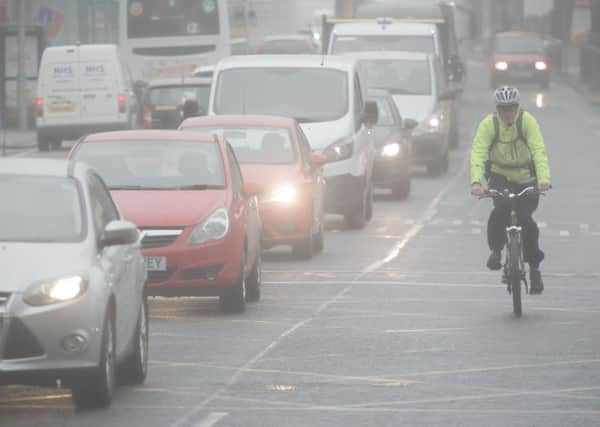Should Edinburgh follow London's lead and introduce an emission charge?


FOR
Edinburgh, like every major Scottish city, has unsafe and illegal levels of air pollution. This toxic air is damaging the health of the capital’s most vulnerable citizens; those who are already ill, unborn babies and children, and the poorest. The primary cause of this pollution are lorries, vans, buses and cars belching exhaust fumes.
Low Emission Zones are a key tool in the fight to make our city streets safer for us all. LEZs, if designed and implemented with ambition, will keep the most polluting vehicles out of the most polluted areas. We think that they should apply restrictions to the dirtiest lorries, vans and buses from the outset before extending to taxis and cars in years to come. This would allow for an approach which treats this health scandal with the seriousness it deserves, but is phased and fair. There are hundreds of Low Emission Zones across Europe, with several major cities like Madrid, Athens and Paris now going further and pledging to phase out the use of all diesel cars and trucks by 2025.
Advertisement
Hide AdAdvertisement
Hide AdWe warmly welcomed the Scottish Government’s recent announcement to phase out the need for fossil fuel vehicles by 2032. Electric vehicles will play an important role in this transport transition but the fact remains that our cities need fewer vehicles, not just newer ones. Low Emission Zones are just one of many improvements towards sustainable transport the Council must introduce. It must of also continue to improve our public transport networks including extending the trams, build high quality cycling paths, and invest in EV infrastructure.
Decades of transport and planning policy has made the car king and slowly but surely we are starting to realise the huge cost of this. Edinburgh residents have a right to clean air and will be keen to see what more action can be taken to give the city back to people.
Emilia Hanna is an air pollution campaigner for Friends of the Earth Scotland
AGAINST
DIESEL engines are emitting dangerous chemicals and our use of them undoubtedly has to be phased out.
Advertisement
Hide AdAdvertisement
Hide AdYet new “T-charges” introduced in London and similar “Low Emission Zones” schemes being mooted for the Scottish capital are a sticking plaster that unfairly punishes drivers - and especially those with less money.
While our understanding of the harm caused by diesel has changed that doesn’t alter the fact that a huge number of well-intentioned drivers – and businesses – spent large portions of their hard-earned income on diesel motors.
And who could blame them? Often with lower road-tax, company car tax and incentivised by higher fuel efficiency figures – the likes of Volkswagen and Mercedes even purposefully branded top-performing diesel engines as “blue” or “eco”.
This all happened against a backdrop of under-investment in electrical vehicle infrastructure, leaving us playing catch-up with many of our European neighbours.
Advertisement
Hide AdAdvertisement
Hide AdT-charges in London will come down hardest on those “just about managing”. It is a plainly regressive tax. Once fully introduced and added to the current congestion charges, drivers of old-vehicles needing to enter central London will be forced to pay a whopping £21.50 per day of driving. It is the old carrot versus stick debate, and in this case the stick is being used to punish the wrong culprit.
More needs to be done at governmental and even international level. While some level of congestion charge in Edinburgh is inevitable and even understandable, it is not a solution in of itself.
It needs complemented by bigger thinking about public transport, cycle schemes, education and heavy investment in EV infrastructure.
Only then will we see plummeting diesel emissions delivered in a way that is fair on the poorest drivers and businesses contributing to the economy and society.
Jerry Stewart is co-director with Eagle Couriers and a Fellow with the Institute of Couriers